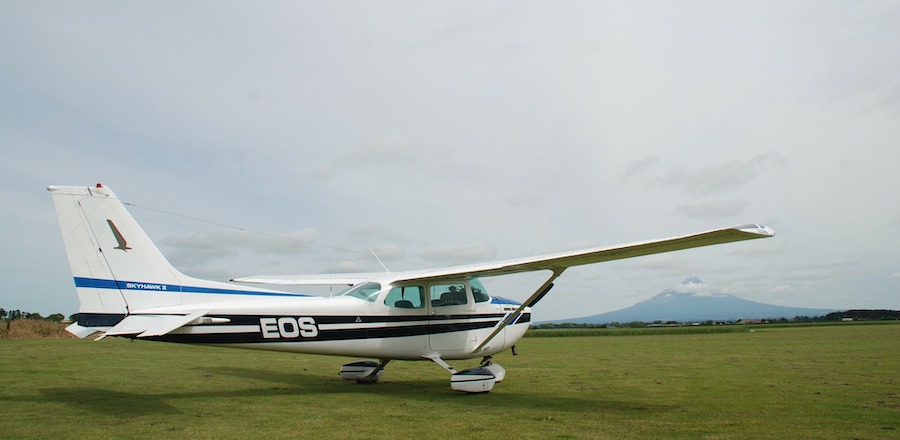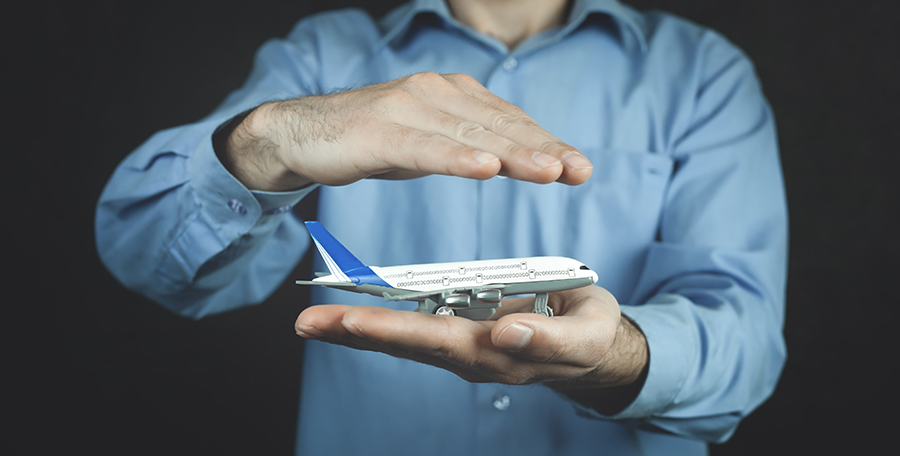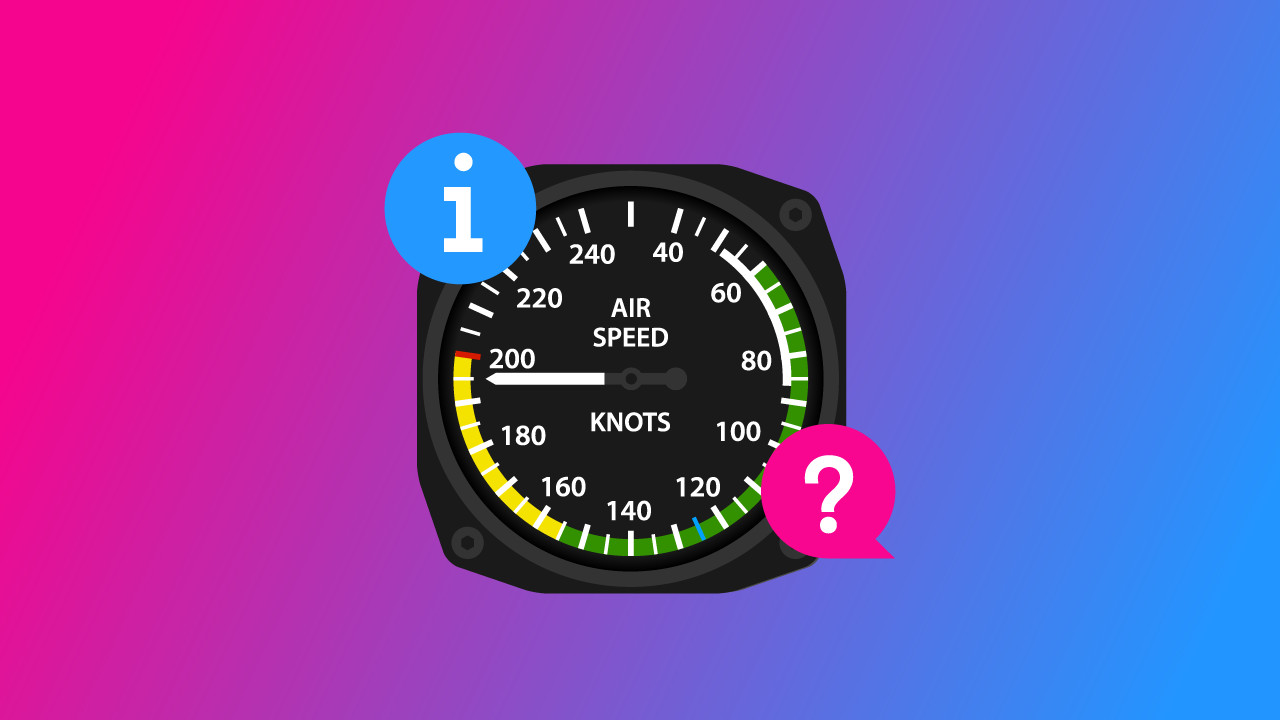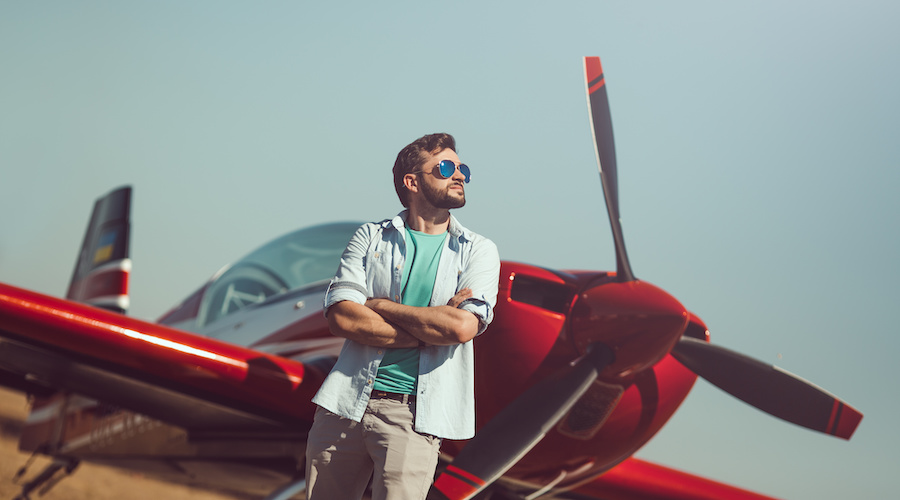-
In Fact, Almost Anyone Can Learn to Fly
-
The Best Instructors May Have Struggled as Students
-
My Experiences When Learning to Fly
-
Why Did I Have so Many Problems Learning to Fly?
-
So What Else Might Make Flight Training Difficult
-
Flying Aptitude Tests
-
So Should Anyone Become a Private Pilot?
-
And Finally...
There are some skills that we assume almost anyone can acquire. We all send our kids to school, expecting them to learn to read, write, and do simple arithmetic well enough to cope with ordinary adult life. Similarly, most people believe they will have the intelligence and coordination required to learn to swim, ride a bike, or drive a car – and indeed, the majority of them do.
Flying is not like that. Many people tend to have an idea that it is different, special…and certainly very difficult. A lot of people who want to be pilots are a little scared that they won’t have the aptitude to do it, and might fail the PPL course. Perhaps, they speculate, being a pilot is something like becoming an opera singer, actor, or professional footballer – only the elite few can make it.
This attitude is perhaps not helped by the presence of flying ‘aptitude’ tests, useful though these may be in some respects. If there is such a test, you may reason, then maybe some people won’t have that aptitude. And much as you don’t want to consider it, perhaps one of these might be you.
Then there are the rumors we sometimes hear of young men and women being ‘chopped’ by the armed forces for not learning to fly quickly enough. Perhaps we even know individuals who have given up PPL training because they found it too difficult. So people go for introductory flights, and a proportion of them enquire afterward, as most instructors have now and then been asked: “Am I good enough? Will I be able to learn to fly?”
So how hard is it to become a private pilot?
In Fact, Almost Anyone Can Learn to Fly
As an instructor, I think that practically anyone can learn to fly. As I tell my students, if you have enough ability to learn to drive a car, you ought to be able to fly a light aircraft. It is more difficult than driving a car, so it will take more time to learn to do it, that’s all. But it isn’t all that much harder.
As with driving or any other skill, some people will take longer than others. So of course it will cost more for some people than it will for others. And, as with driving, some may be better than others when they complete the course.
This last fact may make a difference if you’re planning on being a racing driver…or if you want to take up competitive aerobatic flying. And as mentioned earlier, it could affect your chances of success if you want to be a military pilot. But it certainly doesn’t matter if you’re taking driving lessons in order to drive to work or take your friends for a spin. And it shouldn’t be an issue if you want to get your PPL in order to bore holes in the sky on sunny weekends or take your friends for a spin.
And in career terms, almost any competent driver could become a taxi driver or driving instructor. Similarly, practically any reasonable pilot can probably fly for the airlines or become an instructor.
The Best Instructors May Have Struggled as Students
When it comes to instructing or indeed teaching anything, often the best teachers are those who have had difficulties themselves. This is because they have experienced almost all the problems a student could possibly encounter. Those who find learning easy often can’t really empathize with their students’ difficulties.
I know all about this, as I actually had a great deal of difficulty in learning to fly. Indeed, at one point there were those who thought I wouldn’t ever get my PPL! And there was a time when I even began to wonder myself. So I think it might be useful to share my own experiences…
My Experiences When Learning to Fly
I began learning to fly on impulse, having gone for an introductory flight and loved it, just like so many other people. After about my third lesson my instructor told me I was clearly intelligent and had a lot of determination, and he was sure I’d get my PPL, but… “You won’t do it in the minimum number of hours. Is there any problem with that, with money or anything?”
He meant well; he’d clearly run into students who couldn’t afford more than the 40 flying hour minimum required. He was being kind, but nevertheless it shook me a bit. Like almost all of us, I had expected to be a natural pilot, while at the same time secretly worrying in case I really couldn’t do it. It sounds strange, but I suspect many people feel that way.
I carried on regardless, and things went fairly well until I changed to another instructor, a low hours one who I realise, with hindsight, didn’t have either the experience or empathy with people to be a good teacher. Unfortunately this coincided with my trying to learn perhaps one of the most difficult exercises – how to land.
Like many students before me and since I initially found the landing exercises very hard. But I went on and on struggling until I lost confidence and my instructor began to lose patience. Then came a session where I made a mistake very close to the ground, scaring both of us. That did it; my confidence vanished!
From then on I could barely drive to the airfield without breaking into a sweat, never mind fly properly when I got there. Being stubborn I carried on, but I was really getting nowhere. Eventually others realized there was a fairly serious problem, and the school got me a new instructor who was better at understanding and handling people. He eventually sent me solo. It took me…48 hours. That’s to go solo, remember; it actually took me around 90 hours to get my PPL!
Why Did I Have so Many Problems Learning to Fly?
I now know that my problems were mainly due to poor instruction, plus an experience which caused me to lose confidence at a crucial stage in my training. There was also the fact that I was learning at an airfield in the hills with a short narrow runway and a main road on the undershoot.
Some time after I had my license, I met an ex-instructor from that flying school, who expressed surprise that I had actually made it in the end. As I got ready to give him a piece of my mind for his lack of faith in me, he stopped me. “I didn’t think it was that you couldn’t learn to fly at all”, he said. “I thought maybe you couldn’t learn here. It’s not easy. You’d have had less trouble at a larger airfield”.
At a later date I realized why I had found flying, and particularly landing, so difficult. I had always struggled with depth and distance perception. Indeed, after many years driving a car, I still found it difficult to estimate the speed and distance of other vehicles. It wasn’t a problem; I had learned to make allowances for it and I never thought anything of it. But when the same thing occurred in flight training, I didn’t know what to do…until I recognized the problem.
However, despite appearances at the time, I could learn to fly, and I did. Indeed, I followed up my PPL with a CPL and FI rating, and then a career in aviation. For all my qualifications I took more than the minimum number of hours, but rarely substantially more. In other words, I was an average flight student, and average pilots are fine and can do most things in aviation. Though I probably shouldn’t harbour an ambition to fly fast jets or become a world champion!
So What Else Might Make Flight Training Difficult
As mentioned above, different airfield types do make a difference. On the whole, small airfields are great, as you won’t have to learn to deal with large amounts of commercial traffic early in your training. But those in the mountains, or near the sea, can have local weather conditions which make flying harder than it needs to be.
Airfields with large runways overcome the above problem of course. But if they are busy, you may have to spend a great deal of time learning about radio use early on in your training. In the long run this won’t do you any harm, but it can be a little demoralizing early on.
The quality of your instruction will make more difference than anything. Don’t always blame your instructor, but if you really aren’t making progress, it might be a good idea to try flying with someone else.
Flying Aptitude Tests
What is the point of flying aptitude tests if almost anyone can make it? Well, they give you an idea of how long it is likely to take you to learn to fly. That can be very important, since flying is expensive, so a test could give the potential student information as to how much it is likely to cost him or her.
It might also be worth bearing in mind that the armed forces aren’t the only organizations which have been known to get rid of people who are slow learners. I have heard rumours that some of the airlines do the same, although I don’t know this for certain. And some certainly do not, and it is rare to be asked afterward how long it took you to get your PPL.
However, there are still careers available for those of us who take a little longer to learn to fly, and instructing is definitely one to be recommended. I like to think that I can solve almost any difficulties my students encounter, for the simple reason I’ve probably struggled with it myself in the past. It’s much easier for me than for the natural pilot who climbed into an airplane and instantly knew how to fly it…if such a person really exists!
So Should Anyone Become a Private Pilot?
So far, I’ve never run into anyone who couldn’t learn to fly light aircraft. I’ve had students who’ve found it difficult and taken a long time, and there was even one whom I passed on to another instructor, hoping that would help as he was really having a hard time. But all of them learned in the end, just as almost everyone finally passes their driving test.
However, the fact that anyone can learn to fly doesn’t necessarily mean that everyone should learn to fly. There are those who should probably never be allowed near an aircraft of any type! These include the over-confident, people who think they know it all, and those who take extreme risks. Usually they are weeded out in the early stages of flight training, as they realize flying isn’t for them. Or sometimes they grow up during the course and change their attitude.
Nevertheless, I remember one newly qualified PPL who set off in marginal weather after three instructors had advised him maybe to wait for another day. He managed the flight safely, but he might not have done. And every so often you read of an accident which shouldn’t have happened, where the pilot took off into bad weather, or tried to do something else beyond his ability and experience.
It must be remembered that the good pilot is the one who knows his own capabilities and limitations. That has nothing to do with how quickly he does or does not pick up new skills. It’s much more about personality, maturity, and common sense.
And Finally…
For many people it is hard to get a PPL, but not for everyone. If you are someone who sails through the course easily, be very grateful. But don’t get cocky and assume that you will find everything easy after that, for the PPL is only the beginning. It is often referred to as merely ‘a license to learn’, and there is much more in aviation to learn after that.
But if you’re struggling with the PPL course, or any other flying course for that matter, don’t despair; you’re in good company. You may well end up as a better pilot than the student next to you who gets though the course in minimal hours, but ends up over-confident and thinking he knows it all…or worse. Remember, it is often said that there are no old, bold pilots.



